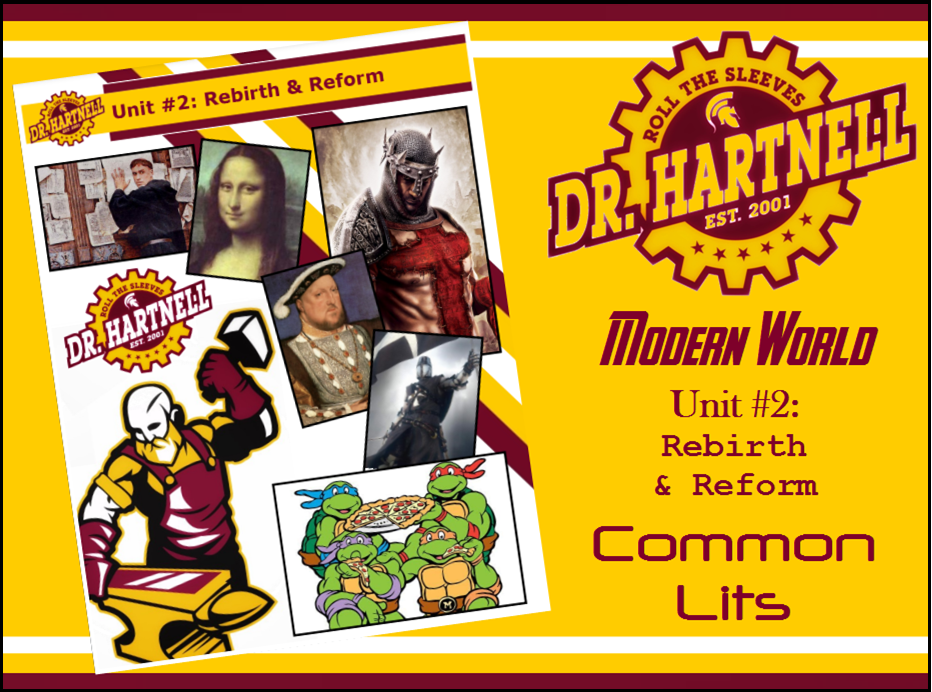The Byzantine Empire
This article details the history of the Byzantine Empire. The empire thrived as a modern, efficient, culturally-rich society for over one thousand years, until it ended in 1453.
CLICK HERE TO READ THIS ARTICLE.
This article details the history of the Byzantine Empire. The empire thrived as a modern, efficient, culturally-rich society for over one thousand years, until it ended in 1453.
CLICK HERE TO READ THIS ARTICLE.
Federigo's Falcon
Giovanni Boccaccio (1313-1375) was an Italian writer, poet, and a Renaissance humanist. "Federigo's Falcon" comes from The Decameron, a masterpiece collection of 100 stories in early Italian prose that broke away from Medieval literary traditions and focused on the human condition rather than spiritual concerns. In this tale, a man loses everything for his love of a rich lady.
CLICK HERE TO READ THIS ARTICLE.
Giovanni Boccaccio (1313-1375) was an Italian writer, poet, and a Renaissance humanist. "Federigo's Falcon" comes from The Decameron, a masterpiece collection of 100 stories in early Italian prose that broke away from Medieval literary traditions and focused on the human condition rather than spiritual concerns. In this tale, a man loses everything for his love of a rich lady.
CLICK HERE TO READ THIS ARTICLE.
Machiavelli's "The Prince"
Niccoló Machiavelli (1469-1527) was an Italian Renaissance historian, politician, and writer based in Florence. His masterpiece, The Prince, published in 1532, advises new princes on how to get and retain power by any means necessary.
CLICK HERE TO READ THIS ARTICLE.
Niccoló Machiavelli (1469-1527) was an Italian Renaissance historian, politician, and writer based in Florence. His masterpiece, The Prince, published in 1532, advises new princes on how to get and retain power by any means necessary.
CLICK HERE TO READ THIS ARTICLE.
Shakespeare: Who was the Bard?
William Shakespeare (1564-1616) was an English poet, playwright, and actor. Shakespeare was credited with writing approximately 38 plays and 154 sonnets. But was Shakespeare the one true author of all those works? This article discusses various theories that question the true identity of this great writer.
CLICK HERE TO READ THIS ARTICLE.
William Shakespeare (1564-1616) was an English poet, playwright, and actor. Shakespeare was credited with writing approximately 38 plays and 154 sonnets. But was Shakespeare the one true author of all those works? This article discusses various theories that question the true identity of this great writer.
CLICK HERE TO READ THIS ARTICLE.
The Legacy of William Shakespeare
William Shakespeare (1564-1616) was an English Poet, playwright, and actor. Shakespeare wrote approximately 39 plays and over 150 sonnets and is widely considered the greatest writer in the English language. This article discusses the legacy of Shakespeare and his popular work.
CLICK HERE TO READ THIS ARTICLE.
William Shakespeare (1564-1616) was an English Poet, playwright, and actor. Shakespeare wrote approximately 39 plays and over 150 sonnets and is widely considered the greatest writer in the English language. This article discusses the legacy of Shakespeare and his popular work.
CLICK HERE TO READ THIS ARTICLE.
Shakespeare's "Romeo & Juliet"
William Shakespeare (1564-1616) was an English poet, playwright, and actor. He wrote 38 plays, including Romeo and Juliet, which recounts the tragic romance of two young lovers divided by their families’ ongoing feud. The following excerpts are taken from the play's prologue and its famous balcony scene.
CLICK HERE TO READ THIS ARTICLE.
William Shakespeare (1564-1616) was an English poet, playwright, and actor. He wrote 38 plays, including Romeo and Juliet, which recounts the tragic romance of two young lovers divided by their families’ ongoing feud. The following excerpts are taken from the play's prologue and its famous balcony scene.
CLICK HERE TO READ THIS ARTICLE.
Shakespeare's "Sonnet 5"
William Shakespeare (1564-1616) was an English poet, playwright, and actor. Shakespeare has written approximately 38 plays and 154 sonnets and is widely considered one of the greatest writers in the English language. In this sonnet, a speaker discusses how outer beauty fades.
CLICK HERE TO READ THIS ARTICLE.
William Shakespeare (1564-1616) was an English poet, playwright, and actor. Shakespeare has written approximately 38 plays and 154 sonnets and is widely considered one of the greatest writers in the English language. In this sonnet, a speaker discusses how outer beauty fades.
CLICK HERE TO READ THIS ARTICLE.
Shakespeare's "Sonnet 18"
William Shakespeare (1564-1616) was an English poet, playwright, and actor. He wrote 154 sonnets and 38 plays, including Romeo and Juliet, which have been translated into every major living language. "Sonnet 18" is one of Shakespeare's best-known sonnets.
CLICK HERE TO READ THIS ARTICLE.
William Shakespeare (1564-1616) was an English poet, playwright, and actor. He wrote 154 sonnets and 38 plays, including Romeo and Juliet, which have been translated into every major living language. "Sonnet 18" is one of Shakespeare's best-known sonnets.
CLICK HERE TO READ THIS ARTICLE.
Shakespeare's "To Be or Not to Be?" Soliloquy
William Shakespeare (1564-1616) was an English poet, playwright, and actor, widely regarded as the greatest writer in the English language and the world's preeminent dramatist. Hamlet is one of Shakespeare's most famous tragedies. The play dramatizes the revenge Prince Hamlet is instructed to enact on his uncle Claudius, who murdered Hamlet’s father. In this soliloquy from Act III, Scene I, a despondent Prince Hamlet contemplates death and suicide while waiting for Ophelia, his love interest.
CLICK HERE TO READ THIS ARTICLE.
William Shakespeare (1564-1616) was an English poet, playwright, and actor, widely regarded as the greatest writer in the English language and the world's preeminent dramatist. Hamlet is one of Shakespeare's most famous tragedies. The play dramatizes the revenge Prince Hamlet is instructed to enact on his uncle Claudius, who murdered Hamlet’s father. In this soliloquy from Act III, Scene I, a despondent Prince Hamlet contemplates death and suicide while waiting for Ophelia, his love interest.
CLICK HERE TO READ THIS ARTICLE.
Shakespeare's "Frailty, Thy Name is Woman"
William Shakespeare (1564-1616) was an English poet and playwright who is widely regarded as the greatest writer and playwright in the English language. Hamlet is one of Shakespeare's most famous tragedies. The play dramatizes the revenge Prince Hamlet is instructed to enact on his uncle Claudius, who murdered Hamlet’s father and married his mother.
CLICK HERE TO READ THIS ARTICLE.
William Shakespeare (1564-1616) was an English poet and playwright who is widely regarded as the greatest writer and playwright in the English language. Hamlet is one of Shakespeare's most famous tragedies. The play dramatizes the revenge Prince Hamlet is instructed to enact on his uncle Claudius, who murdered Hamlet’s father and married his mother.
CLICK HERE TO READ THIS ARTICLE.
Donne's "Death Be Not Proud"
John Donne (1572 -1631) was an English poet whose experience as a cleric in the Church of England often influenced his poetry. Donne wrote "Death Be Not Proud" (also known as "Sonnet X") while fighting a major illness that brought him close to death.
CLICK HERE TO READ THIS ARTICLE.
John Donne (1572 -1631) was an English poet whose experience as a cleric in the Church of England often influenced his poetry. Donne wrote "Death Be Not Proud" (also known as "Sonnet X") while fighting a major illness that brought him close to death.
CLICK HERE TO READ THIS ARTICLE.
Donne's "No Man is an Island"
John Donne (1572-1631) was an English poet whose time spent as a cleric in the Church of England often influenced the subjects of his poetry. In 1623, Donne suffered a nearly fatal illness, which inspired him to write a book of meditations on pain, health, and sickness called Devotions upon Emergent Occasions. "No Man is an Island" is a famous section of "Meditation XVII" from this book.
CLICK HERE TO READ THIS ARTICLE.
John Donne (1572-1631) was an English poet whose time spent as a cleric in the Church of England often influenced the subjects of his poetry. In 1623, Donne suffered a nearly fatal illness, which inspired him to write a book of meditations on pain, health, and sickness called Devotions upon Emergent Occasions. "No Man is an Island" is a famous section of "Meditation XVII" from this book.
CLICK HERE TO READ THIS ARTICLE.
Feudal Japan & Samurai
From the 10th to the 19th century, Feudal Japan followed a strict class system that divided people based on their social status and the amount of money they had. In this article, a rice farmer must explain this system to his son, who has the unlikely dream to become a samurai.
CLICK HERE TO READ THIS ARTICLE.
From the 10th to the 19th century, Feudal Japan followed a strict class system that divided people based on their social status and the amount of money they had. In this article, a rice farmer must explain this system to his son, who has the unlikely dream to become a samurai.
CLICK HERE TO READ THIS ARTICLE.
The Cultivation of Virtue & Politeness
Zhao Ban (45-116 AD) was China's first female historian and author of influential books about how women should behave. These texts were so influential that, although they were written during the Han dynasty (206 BC-220 BC), they were still read during the late Ming (1369-1644) and Qing (1644-1912) Dynasties. Because this piece was written hundreds of years ago in another language, the sentence structure may be difficult to understand at first. Read the text carefully, paying attention to the punctuation and rereading lines when necessary.
CLICK HERE TO READ THIS ARTICLE.
Zhao Ban (45-116 AD) was China's first female historian and author of influential books about how women should behave. These texts were so influential that, although they were written during the Han dynasty (206 BC-220 BC), they were still read during the late Ming (1369-1644) and Qing (1644-1912) Dynasties. Because this piece was written hundreds of years ago in another language, the sentence structure may be difficult to understand at first. Read the text carefully, paying attention to the punctuation and rereading lines when necessary.
CLICK HERE TO READ THIS ARTICLE.




